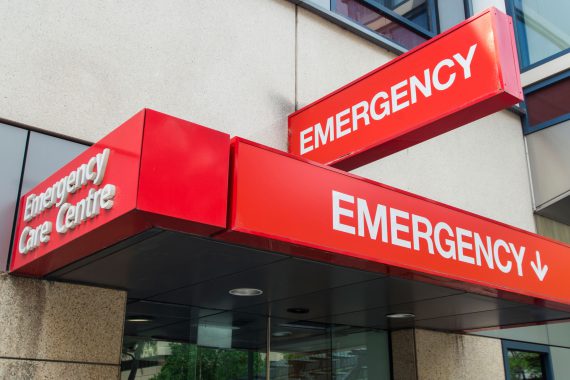A&Es face ‘unprecedented demand’ as four trusts declare alerts

Four hospitals have declared black or red alerts in the last two months, with another hospital experiencing ‘almost unprecedented levels of demand’ – which GP leaders warn will put general practice under even more pressure this winter.
The A&Es at Bath’s Royal University Hospital and Northampton General Hospital declared black alerts in September and October, while Torbay Hospital declared a red alert in September because of a high number of attendances at A&E.
This is on top of the black alerts called at Addenbrooke’s Hospital, which declared a ‘critical internal incident’ because of a lack of beds, and 13-hour waits at the A&E department at Queen Elizabeth The Queen Mother Hospital
Meanwhile, University Hospitals of North Midlands NHS Trust wrote on Twitter that demand at County Hospital and Royal Stoke University Hospital reached ‘an almost unprecedented level’, and urged patients to only attend A&E in the case of an emergency.
GP leaders have warned that this is unusual this early in the season, and there is a ‘big fear’ than general practice will not be able to cope with the added pressure placed on practices by the problems in secondary care.
This comes as NHS England chair Professor Sir Malcolm Grant told delegates at the National Children and Adult Services Conference this month that NHS England ‘is more scared than we have ever been’ about the upcoming winter, due to a heavy flu season in Australia and New Zealand – a reliable indicator for the flu season in the Northern Hemisphere.
Last year, with a mild flu season, the Red Cross said it was deployed to help in urgent care services, the Government suspended elective care and non-urgent outpatient appointments, and the BMA warned the situation in hospitals was getting to ‘dangerous levels’.
This year, more trusts are already reporting problems:
- A combination of high demand and triaging meant some patients at Wrexham Maelor Hospital in Wales were left waiting over 12 hours to see a doctor earlier this month, with a spokesperson for the Betsi Cadwaladr University Health Board apologising to patients;
- Patients in Shropshire have been turned away from neurology services at The Shrewsbury and Telford Hospital NHS Trust (SaTH) since March, and the service has been suspended for the whole winter;
- Torbay and South Devon NHS Foundation Trust said the trust declared a red alert ‘on a number of occasions’ during September because the A&E had a high number of attendances and many ‘who had very acute needs’;
- GPs were asked to review referrals and take on patients to tackle a backlog of 30,000 patients waiting for treatment at NHS North Lincolnshire and Goole Foundation Trust.
- United Lincolnshire Hospitals Trust (ULHT) has asked GPs to refer patients out of county for non-urgent ear nose and throat (ENT), cardiology, neurology and dermatology services due to a shortage of specialist doctors and long waiting lists.
Dr Robert Morley, policy lead for the BMA’s GP Committee, said: ‘While general practice is getting used to these alerts, it is indeed unusual to get such a bed crisis so early in the autumn and it doesn’t augur at all well for the winter to come.
‘Needless to say general practice has to deal with such workload crises all year round and does not have the safety valves that hospitals can call upon.’
Dr Peter Holden, former urgent care lead of the GPC, said: ‘Most hospitals have been teetering on red and black alert all summer. This not at all surprising. The fear we’ve all got is how the hell are we going to manage this winter. That is the big fear because we don’t think we will. The system is so chronically under funded, so stretched to the limits that we just can’t do any more.’
He added: ‘The system is absolutely at its limit, it’s on its knees. This is just going to mean more work for GPs, more hassle, yet more pressure in an already crazy day.’
Pulse October survey
Take our July 2025 survey to potentially win £1.000 worth of tokens













